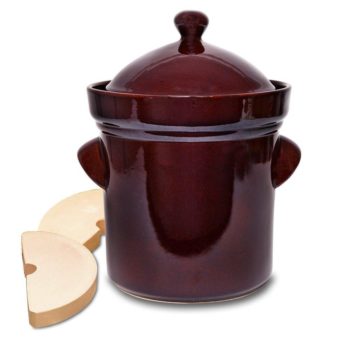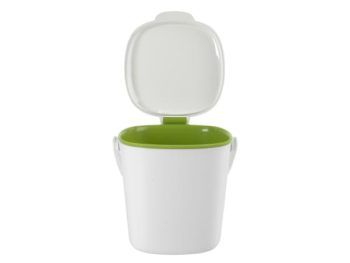Although our ancestors used to eat it in abundance, in today’s times it’s not uncommon to ask the question, “What is organic food?”
The truth is, the organic eating trend has made a comeback and is still going strong, gaining momentum as we speak. We look at what this trend really entails, and offer some great pointers for gadgets, recipes and blogs.
Also have a look at when it’s really worth buying organic foods
How do I know if it’s organic?
The term ‘organic’ is still in the limelight with many producers out there wanting to claim it.
It refers to produce that’s been grown or produced without using man-made chemicals, hormones, preservatives, or antibiotics, and is also GMO-free, which means it hasn’t been genetically modified in any way.
Don’t be fooled by opportunists jumping on the bandwagon, as not all produce that’s labelled organic is legit and, with a lack of regulation in SA, it can be difficult to know what is truly organic – and what isn’t.
What food labels mean
If a product is listed saying “made with organic products” this means that at least 70% of the input (ingredients used), but not necessarily the manufacturing process, is organic.
For example, a cheese producer may be using organic milk, but non-organic rennet cultures. “100% organic” means both the input and the process (organic farming- and manufacturing methods) comply with the certifier’s organic standards.
“Organic in conversion” means the producer has applied for certification, and it’s pending.
Is organic healthier?
Organic food supposedly has less hormones and pesticides, and more nutrients than non-organic varieties – and fans of organic eating swear that the food even tastes better. But research into whether it is, in fact, healthier than non-organic food is somewhat conflicted, so the jury is still out. This is what a few studies on the health benefits do show, to date…
More antioxidants
One peer-reviewed study conducted by researchers at Newcastle University in the UK in 2014 found the level of antioxidant compounds in organic food to be much higher than in food grown conventionally – as much as 69% higher in some cases.
Antioxidants are said to help fight the visible signs of skin ageing, and are also thought to reduce the risk of developing certain types of cancer.
Rich in omega-3 fatty acids
Research that was conducted in 2013, and then published in the peer-reviewed online journal PLOS ONE, found that organic milk has higher levels (ranging from 19% more) of omega-3 fatty acids than non-organic milk.
And studies done by researchers at the California State University and at Sydney University found organic meat and eggs also have higher omega 3 levels than their non-organic counterparts. Omega 3s are believed to help protect against stroke as well as heart disease.
Less of the nasties
The Newcastle study into antioxidants also reported that organic food contains lower levels of toxic metals – sometimes up to 50% lower than conventionally-grown food. This was especially the case with the metal cadmium, as well as with pesticides.
The study concluded that pesticides were four times more likely to be found on non-organic produce. Various studies show that the cumulative ingestion of certain pesticides may have detrimental effects on the body’s nervous- and endocrine systems, while higher levels of cadmium in the body have been linked to certain respiratory ailments.
See our pick of organic beauty products to try now
Organic certification
Not everyone shunning pesticides – or following organic methods to the T – is free to label their goods as such. In most developed countries, ‘organic’ is a certified label, which means the use of it is controlled, and it’s measured against a set of legally-recognised standards (for instance, organic fertilisers are used in the production process, or veg is grown in the ground, not in containers).
Looking for organic certification?
Check for small labels, like a seal, stamp, or sticker, on the product packaging (for an array of items from honey and nuts, to fruit, vegetables and meat), indicating who certified it. Names to look out for include Afrisco, SGS South Africa, BDOCA, and Ecocert.
You can also use these handy tips to grow your own organic fruits and veggies
Products for your organic lifestyle
Fermentation Crock Pot
Fermentation is a big food trend right now – but in no way a new fad, as people have been using fermentation to preserve food for centuries. Fermented food is said to be great for gut health, much like probiotics. Ferment foods, from sauerkraut to pickles and even yoghurt, at home using a fermentation crock.

5L Fermentation Crock Pot Set, R1800, GO NATURAL
If you love the idea of healthy fermented foods, why not try making your own kombucha?
Cheese Cloth
Looking to turn your organic milk into home-made soft cheese? You’ll have to use organic, unpasteurised milk, organic rennet, vinegar and a strainer or cheese cloth.

Reusable Cheese Cloth, R20, Crafty Cultures
Compost Bin
Don’t waste the cut-offs from organic cooking. Chuck all of them in a compost bin and work the organic compost into your veggie beds to nourish the soil.

Good Grips Countertop Compost Bin, R360, Yuppiechef

